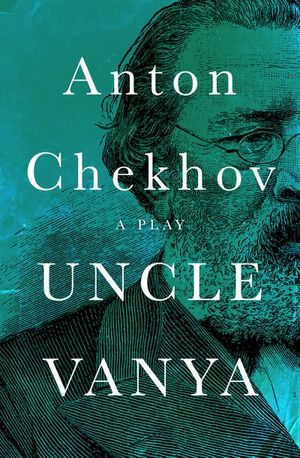Uncle Vanya
Published by Open Road Media
One of the most important dramatic works from the acclaimed Russian playwright and “father of the modern dysfunctional family comedy” (Hyde Park Herald).
A classic four-act romantic tragedy, Uncle Vanya is essentially a reworking of an earlier Chekhov play, The Wood Demon. It tells the story of a retired university professor and his extended middle-class family. When the professor unexpectedly announces he is about to sell his country estate, scheming between the play’s nine principle characters ensues. Tensions crest when their security is threatened and disappointments from the past—unrequited feelings, miseries, and failures—shockingly resurface.
One could think of Uncle Vanya, which had its Moscow premiere in 1899 and remains a favorite of theatergoers to this day, “as the forerunner of existential tragicomedies like Waiting for Godot and No Exit. Underlying the characters’ boredom, frustration, and desperation is the monumental realization that their lives are meaningless and have no purpose, even if some of them are in denial” (Hyde Park Herald).
“Uncle Vanya is a study of ennui, unfulfilled desires, and the misery of rural isolation. Yet it’s also funny—full of Chekhov’s social satire and disdain for hypocrisy.” —Go London
A classic four-act romantic tragedy, Uncle Vanya is essentially a reworking of an earlier Chekhov play, The Wood Demon. It tells the story of a retired university professor and his extended middle-class family. When the professor unexpectedly announces he is about to sell his country estate, scheming between the play’s nine principle characters ensues. Tensions crest when their security is threatened and disappointments from the past—unrequited feelings, miseries, and failures—shockingly resurface.
One could think of Uncle Vanya, which had its Moscow premiere in 1899 and remains a favorite of theatergoers to this day, “as the forerunner of existential tragicomedies like Waiting for Godot and No Exit. Underlying the characters’ boredom, frustration, and desperation is the monumental realization that their lives are meaningless and have no purpose, even if some of them are in denial” (Hyde Park Herald).
“Uncle Vanya is a study of ennui, unfulfilled desires, and the misery of rural isolation. Yet it’s also funny—full of Chekhov’s social satire and disdain for hypocrisy.” —Go London
BUY NOW FROM
COMMUNITY REVIEWS

